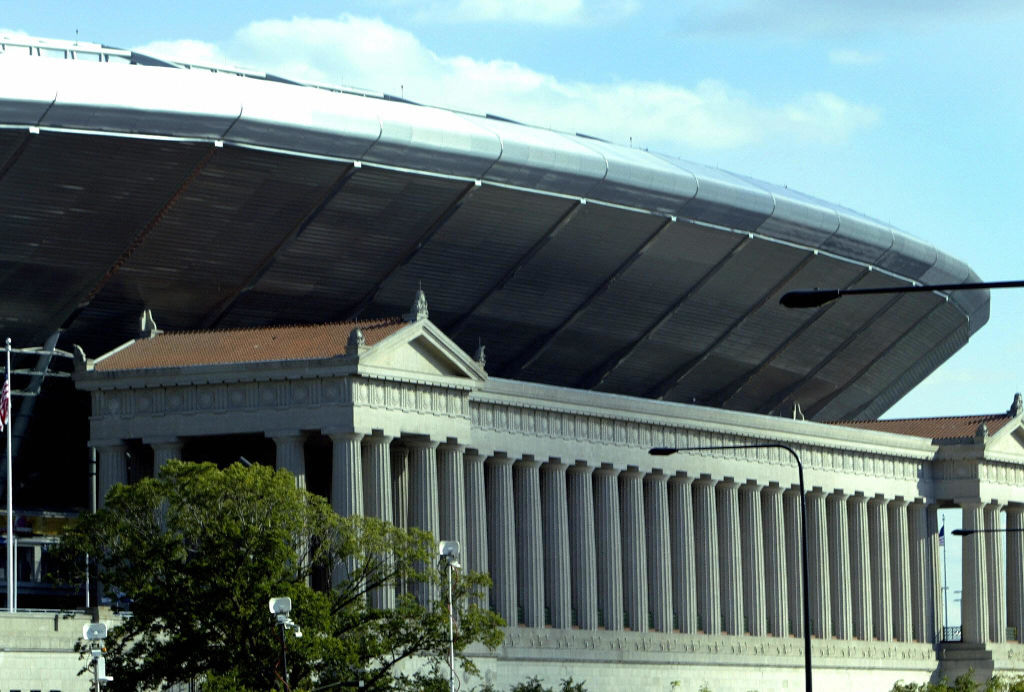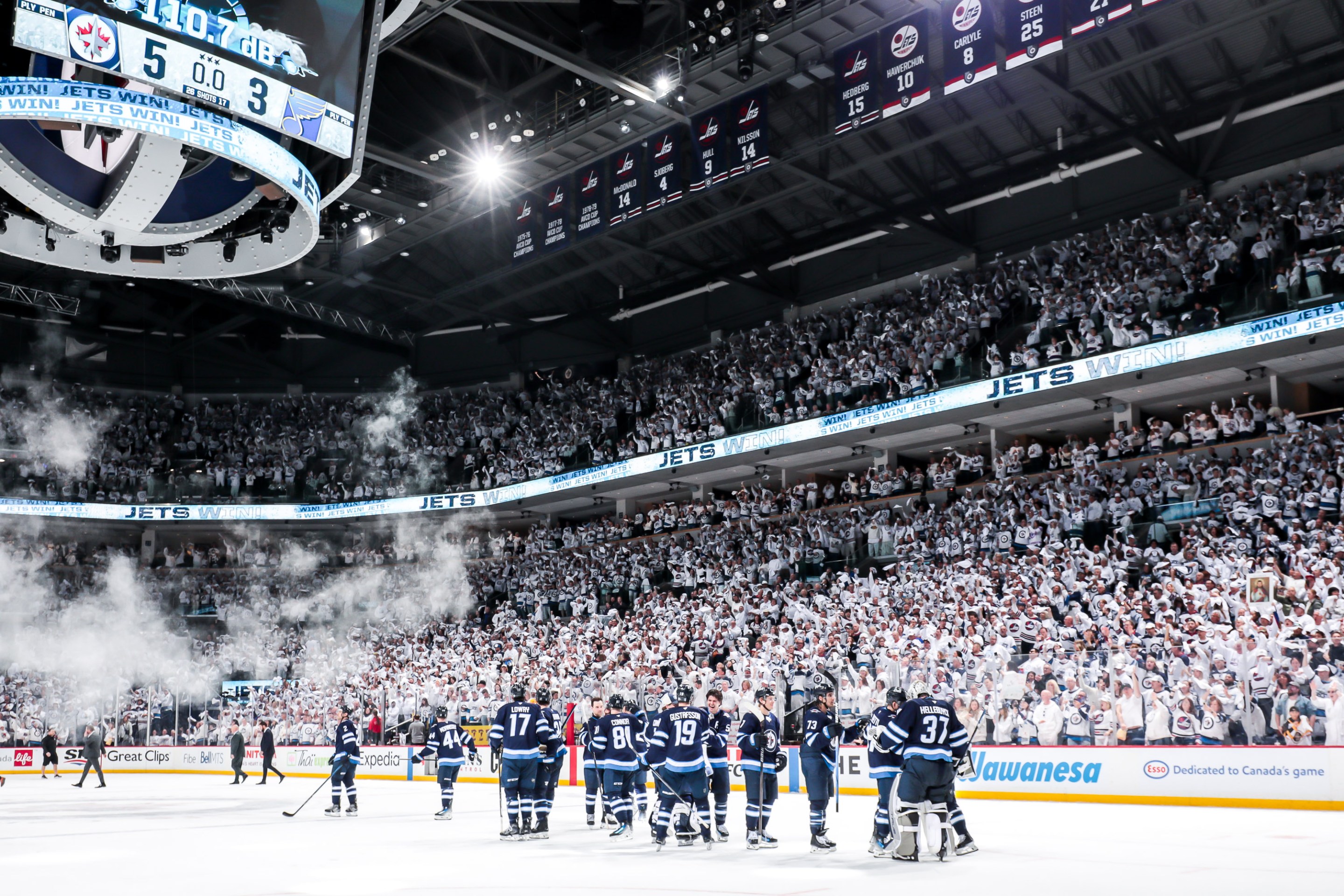It's been nearly a year since the owners of the Bears started making a lot of noise about moving the team out of Chicago and to the suburbs. Last September, the team signed a purchase and sale agreement with Churchill Downs Incorporated, which will hand over a 326-acre parcel of land in Arlington Heights for $197.2 million. The Bears' lease at Soldier Field, the team's South Side home since 1971, runs through 2033, but the team can get out of that agreement as early as 2026 so long as it is willing to pay an $84 million termination fee to the city. Construction of a new stadium in Arlington Heights would take a long time, but runway for the team's flight from the city has been laid.
Do the Bears really want to leave? That's the question that needs to be asked whenever a team that plays in an old stadium starts sketching out plans to find a new home. We've seen this song and dance play out enough times to know that the specter of leaving is often only raised as a negotiating tactic; it's much easier to squeeze a local government for a few hundred million dollars in renovation or new construction subsidies when a tangible threat to play elsewhere can be made. This form of extortion has worked for decades, but lately an increasing number of cities have been refusing to play ball. Would Chicago?
On Monday, we got something of an answer when Chicago mayor Lori Lightfoot unveiled three options for keeping the Bears in Soldier Field. The construction costs associated with any of the three options could range from $900 million to $2.2 billion, and although Lightfoot's proposals didn't say much about specifically where all that money would come from, it's safe to assume that the public would be on the hook for a fair chunk of the costs. Anyway, here are the three ideas, from ESPN:
The first would fully enclose the stadium by rebuilding both end zones with columns that can support a dome structure.
The second would require both end zones to be rebuilt with columns to make the stadium dome-ready.
The third option calls for modifications to make Soldier Field a multipurpose stadium suited to host soccer games while also making it a viable location to accommodate major concerts and a range of events.
ESPN
We've seen a lot of mayors and city councils roll over and offer up their municipal budgets to the local sports team over the last few decades, and Lightfoot's attempt rates pretty high on the humiliation scale. Offering as much as $2 billion to plunk an ill-fitting dome onto a once-classic piece of architecture that has already been marred by modern renovations? And doing all of that for the sake of appeasing a franchise that hasn't won a playoff game since 2010?
What makes the unveiling of these plans doubly embarrassing for Lightfoot is that her capitulation doesn't seem to have moved the needle for the Bears. When the organization was asked to respond to the mayor's proposals, it just released an identical statement to one it had already put out earlier this month:
The only potential project the Chicago Bears are exploring for a new stadium development is Arlington Park. As part of our mutual agreement with the seller of that property, we are not pursuing alternative stadium deals or sites, including renovations to Soldier Field, while we are under contract. We have informed the city of Chicago that we intend to honor our contractual commitments as we continue our due diligence and predevelopment activities on the Arlington Heights property.
Chicago Bears
Sheesh. So here we are looking at an example of the classic stadium financing shakedown working out perfectly in the Bears' favor, yet the team couldn't even be bothered to draft up some fresh language with which to swat Lightfoot's plans into the garbage. This is supposed to be the stage at which the team puts the we're-leaving-and-don't-you-dare-try-to-stop-us routine bed and agrees to accept what it has always been after: a bunch of free money it did nothing to deserve. And yet that does not appear to be what's happening. Lightfoot played the game, and the Bears still mushed her. Sad for Lori! But also just kind of the way things are now.
The Bears are not doing anything novel by attempting to move 30 miles out of the city that is nominally their home so that they can play games in a stadium gifted to them and in front of a much more affluent (and whiter) fanbase. Everyone knows that the "economic impact" of a publicly funded stadium is less than nil, but one could be forgiven for hoping that all the public money that's been shoveled into the coffers of so many billion-dollar sports franchises over the last several decades would buy something, if even just an understanding that paying the ransom will get you the hostage back. But man, this seems like a particularly cruel stage for the historically parasitic relationship between sports teams and cities to reach. Any genuine bond produced by such arrangements only extends in one direction—I have no doubt that thousands of Bears fans will be crushed if and when the team leaves the city—and it is increasingly unmet by the other side. The Bears know what every other team knows: There's no money to be found in sentimentality.
And so this is what we are left with. A culture that has not just allowed but championed the practice of subsidizing stadiums—all in the meager and desperate pursuit of keeping teams in the communities that love them most—being told that such an arrangement is suddenly no longer good enough. At least the guys who run protection rackets have the decency not to go around burning down the businesses that make their payments on time.






